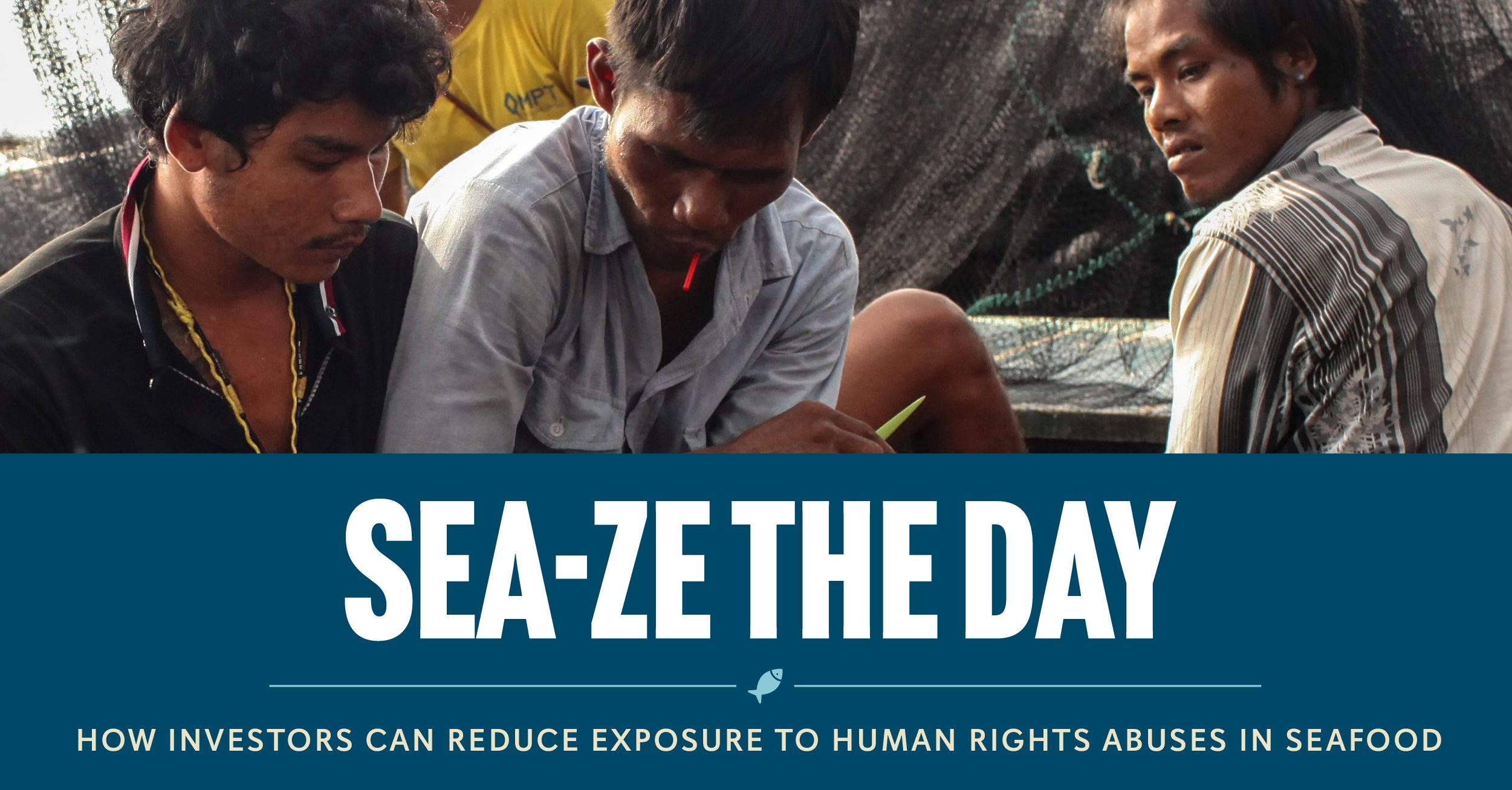Latest Benchmark Reveals How Global Apparel Brands Continue to Fail Workers
The majority of apparel and footwear brands still cannot demonstrate how they are mitigating the risks of forced labor that may result from unethical recruitment practices.
NEW YORK, NY, WEDNESDAY, MAY 26TH, 2021 – In early 2019, a group of global investors, led by the Interfaith Center on Corporate Responsibility (ICCR) and supported by the Principles for Responsible Investment (PRI) committed to address the findings of KnowTheChain’s 2018 apparel and footwear benchmark which demonstrated a sector-wide failure to address exploitative recruitment practices that could lead to forced labor. Forty-three companies were sent letters, or otherwise engaged.
Today, KnowtheChain released its 2021 sector benchmark which indicates that these investor engagements have had some impact on worker rights: all of the companies benchmarked in both 2018 and 2021 made some improvements since 2018, with the strongest improvements seen on the theme of responsible recruitment. Specifically, since 2018, nine companies published a policy prohibiting worker-paid recruitment fees in their supply chains, and five companies reported that workers in their supply chains have been repaid recruitment fees.
Yet, the new benchmark also revealed several disturbing trends: of the 37 largest apparel and footwear companies in the world, the majority (78%) still do not disclose whether workers in their supply chains are repaid recruitment fees let alone how they protect workers from having to pay such fees in the first place.
Even before the COVID-19 pandemic, reports of forced labor in the sector were skyrocketing with allegations of abuse identified in the supply chains of more than half the benchmarked companies (54%) and some companies facing up to four allegations. In addition, many workers have lost their livelihoods due to COVID-19 and millions of global apparel workers still await payment by their employers of legally owed wages and benefits. Yet, only four out of the 37 companies (11%) benchmarked could demonstrate several examples of how workers were receiving remedy, including repayments of unpaid wages or recruitment fees. In fact, half of the companies scored zero on the remedy indicator including online retailers such as Amazon and Zalando, which have profited significantly during the pandemic. Not only are companies not remediating past abuses, the benchmark also showed that they are a far cry away from building a more equitable and resilient supply chain system as the economy recovers. Half the companies scored zero on the most worker-centric indicators: those that focus on due diligence processes related to worker participation, and concrete outcomes for workers.
“Companies with sound supply chain management pay workers their legally owed wages and severance pay,” said Vincent Kaufmann, CEO, Ethos Foundation. “We urge investors to use tools such as KnowTheChain to identify risks and steps companies in their portfolios need to take to remedy detected shortcomings.”
The group of more than 60 investors led by ICCR said they are committed to press companies to ensure these remedies are awarded to workers, and are prepared to act if companies fail to do so.
“KnowTheChain benchmarks have strengthened our engagements and enabled us to distinguish companies that are taking important and replicable steps from those whose inaction is putting vulnerable workers at risk. It is imperative that companies address exploitative working conditions in their supply chains, including forced labor and human trafficking—and we need to see proof on the ground. Policies are no longer sufficient; companies need to show that their policies and processes make a difference for workers,”said Julie Tanner, Managing Director, Christian Brothers Investment Services. “As a responsible investor, where portfolio companies continue to fail to remediate abuses, we will use the power of the proxy and vote against boards to stand in solidarity with workers in global supply chains.”
The investors also say they will urge companies to adopt worker-centric due diligence models that are built on responsible purchasing practices and support worker empowerment, including freedom of association and collective bargaining and enforceable labor rights agreements.
“ICCR members have focused on workplace human rights in supply chains for decades,” stated David Schilling, Senior Program Director, ICCR. “Some leading companies have made progress, but the sector, as evidenced by the KTC benchmark, has not sufficiently filled the gap between policy, processes and performance. To do so, companies and their suppliers must engage workers as agents to transform the garment sector from the ground up, where workers receive a living wage and labor under safe and healthy conditions.”
“The investor community must come together and mobilize and protect the rights of the millions of workers that are in situations of modern slavery and human trafficking today,” said Fiona Reynolds, CEO, PRI. “This is why the PRI has been supporting ICCR’s KnowTheChain engagements on forced labor in apparel supply chains since its inception. With our five-year human rights program, the PRI will ensure investors play their part to ensure respect of workers’ rights in global supply chains.”
About the Interfaith Center on Corporate Responsibility (ICCR)
Currently celebrating its 50th year, ICCR is the pioneer coalition of shareholder advocates who view the management of their investments as a catalyst for social change. Its 300-plus member organizations comprise faith communities, socially responsible asset managers, unions, pensions, NGOs and other socially responsible investors with combined assets of over $USD 4 trillion. ICCR members engage hundreds of corporations annually in an effort to foster greater corporate accountability. Visit our website www.iccr.org and follow us on Twitter, LinkedIn and Facebook.









